
Pehr Evind Svinhufvud af Qvalstad was the third president of Finland from 1931 to 1937. Serving as a lawyer, judge, and politician in the Grand Duchy of Finland, which was at that time an autonomous state under the Russian Empire’s rule, Svinhufvud played a major role in the movement for Finnish independence. He was the one who presented the Declaration of Independence to the Parliament.
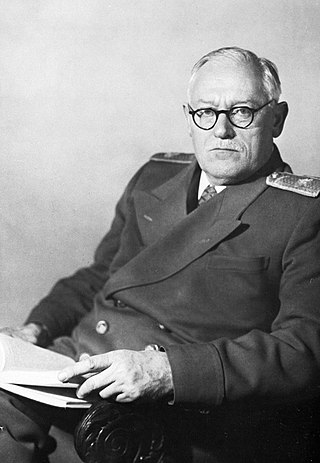
Andrey Yanuaryevich Vyshinsky was a Soviet politician, jurist and diplomat.

The Law of the Soviet Union was the law as it developed in the Soviet Union (USSR) following the October Revolution of 1917. Modified versions of the Soviet legal system operated in many Communist states following the Second World War—including Mongolia, the People's Republic of China, the Warsaw Pact countries of eastern Europe, Cuba and Vietnam.

The Judiciary of Russia interprets and applies the law of Russia. It is defined under the Constitution and law with a hierarchical structure with the Constitutional Court and Supreme Court at the apex. The district courts are the primary criminal trial courts, and the regional courts are the primary appellate courts. The judiciary is governed by the All-Russian Congress of Judges and its Council of Judges, and its management is aided by the Judicial Department of the Supreme Court, the Higher Qualification Board of Judges, and the Ministry of Justice, and the various courts' presidents. And although there are many officers of the court, including jurors, the Prosecutor General remains the most powerful component of the Russian judicial system.
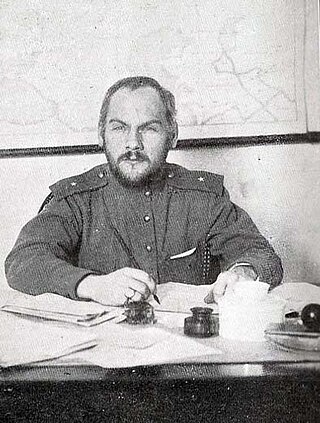
Nikolai Vasilyevich Krylenko was an Old Bolshevik and Soviet politician, military commander, and jurist. Krylenko served in a variety of posts in the Soviet legal system, rising to become People's Commissar for Justice and Prosecutor General of the Russian Soviet Federated Socialist Republic. He was executed during the Great Purge.

Boris Krivokapić is a full professor of Public International Law as well as of Human Rights with the University Union - Nikola Tesla in Belgrade, and professor at Law School of the Samara National Research University "S. P. Korolev".
Harold Joseph Berman was an American legal scholar who was an expert in comparative, international and Soviet/Russian law as well as legal history, philosophy of law and the intersection of law and religion. He was a law professor at Harvard Law School and Emory University School of Law for more than sixty years, and held the James Barr Ames Professorship of Law at Harvard before he was appointed as the first Robert W. Woodruff Professor of Law at Emory. He has been described as "one of the great polymaths of American legal education."
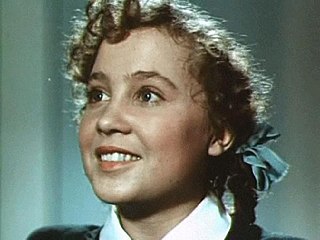
Nadezhda Vasilyevna Rumyantseva was a popular Soviet and Russian actress. People’s Artist of the RSFSR (1991).

Obrad Stanojević was an emeritus professor and former dean of the University of Belgrade's Law School, Serbia. He was a renowned expert in Roman law, comparative law, civil law and international law, and has written extensively in these fields. Stanojević was a member of the international advisory board of the Loyola University New Orleans College of Law and has been associated with this law school since 1990, when he visited it as a Fulbright Scholar. He has also taught at the Loyola College of Law as a visiting professor from 1994 to 1996, and he has taught in Loyola's summer programs in Hungary, Mexico, and Russia. He has lectured widely at leading European universities. Together with Professor Sima Avramović, he was the organizer of the prestigious Belgrade Competition in Oratory. Additionally, Stanojević was the only representative from Eastern Europe of the international review Revue internationale des droits de l’Antiquité – Brussels.
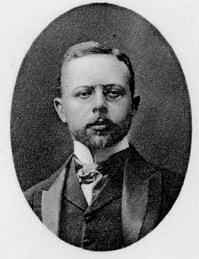
Baron Mikhail Alexandrovich Taube was a Russian international lawyer, statesman and legal historian. Being a Catholic converted from Russian Orthodoxy, Taube came from an old Swedish-German family von Taube, known from the 13th century, one of the branches of Baltic Germans in the service of the Russian throne.

William Elliott Butler was a jurist and educator at the John Edward Fowler Distinguished Professor of Law, Dickinson School of Law, Pennsylvania State University (2005-) and Professorial Research Associate, School of Oriental and African Studies, the University of London (2006-), and Emeritus Professor of Comparative Law in the University of London (2005-). He was an authority on the legal systems of Russia, other members of the Commonwealth of Independent States (CIS), and Mongolia. He was also involved in the fields of public and private international law. He is currently 83 years old and has written 4 books about the Russian Law.

The Ministry of Justice of the Union of Soviet Socialist Republics (USSR), formed on 15 March 1946, was one of the most important government offices in the Soviet Union. It was formerly known as the People's Commissariat for Justice abbreviated as Наркомюст (Narkomiust). The Ministry, at the All-Union (USSR-wide) level, was established on 6 July 1923, after the signing of the Treaty on the Creation of the USSR, and was in turn based upon the People's Commissariat for Justice of the Russian Soviet Federative Socialist Republic (RSFSR) formed in 1917. The Ministry was led by the Minister of Justice, prior to 1946 a Commissar, who was nominated by the Chairman of the Council of Ministers and confirmed by the Presidium of the Supreme Soviet, and was a member of the Council of Ministers.
The rule according to a higher law is a statement which expresses that no law may be enforced by the government unless it conforms with certain universal principles of fairness, morality, and justice. Thus, the rule according to a higher law may serve as a practical legal criterion to qualify the instances of political or economical decision-making, when a government, even though acting in conformity with clearly defined and properly enacted law, still produces results which many observers find unfair or unjust.
Sergei Borisovich Krylov was a Soviet diplomat and one of the authors of the UN Charter. He served as a judge of the International Court of Justice from its beginning in 1946 until 1952. He taught at the Moscow State Institute of International Relations. He was a leading Soviet scholar of international law. He advised the Soviet Union government during the negotiations leading up to the creation of the United Nations.
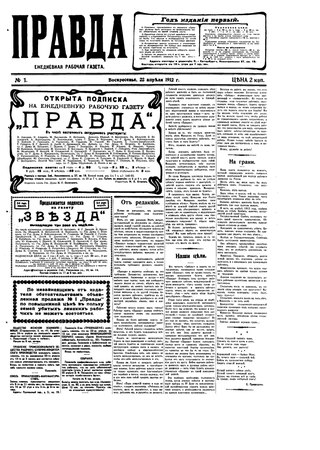
Pravda is a Russian broadsheet newspaper, and was the official newspaper of the Central Committee of the Communist Party of the Soviet Union, when it was one of the most influential papers in the country with a circulation of 11 million. The newspaper began publication on 5 May 1912 in the Russian Empire, but was already extant abroad in January 1911. It emerged as the leading government newspaper of the Soviet Union after the October Revolution. The newspaper was an organ of the Central Committee of the CPSU between 1912 and 1991.

Victor Sylvestrovych Solowij, later known as Archbishop Varlaam, was an archbishop of the Ukrainian Autocephalic Orthodox Church known for his public-political and church activism. He was born in the village of Kyriivka, in the Sosnycia District of Chernihiv Province, Ukraine.
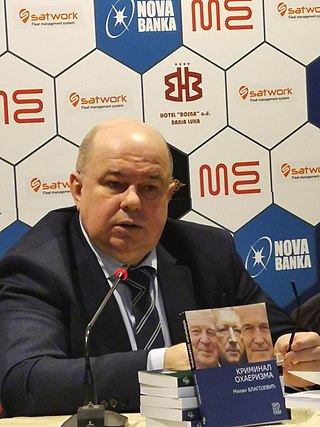
Milan Blagojević in Gračanica is a Serbian jurist, full-time Professor of Constitutional Law and the former judge of the District Court of Banja Luka. During 2023 year he was legal advisor of Serb member of the Presidency of Bosnia and Herzegovina.

Aron Naumovich Trainina.k.a.Moshe Aron Naumovich Trainina.k.a.Moshe Aron Nahimovich Trainin was a Soviet jurist and criminologist.
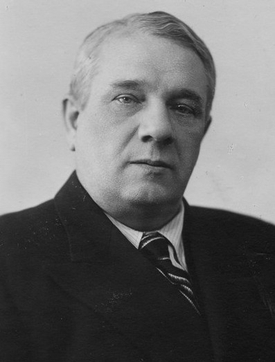
Ivan Terentyevich Golyakov was a figure in the Soviet prosecutor's office and court. Chairman of the Supreme Court of the Soviet Union (1938–1948). One of the organizers of the Stalinist Repressions.














